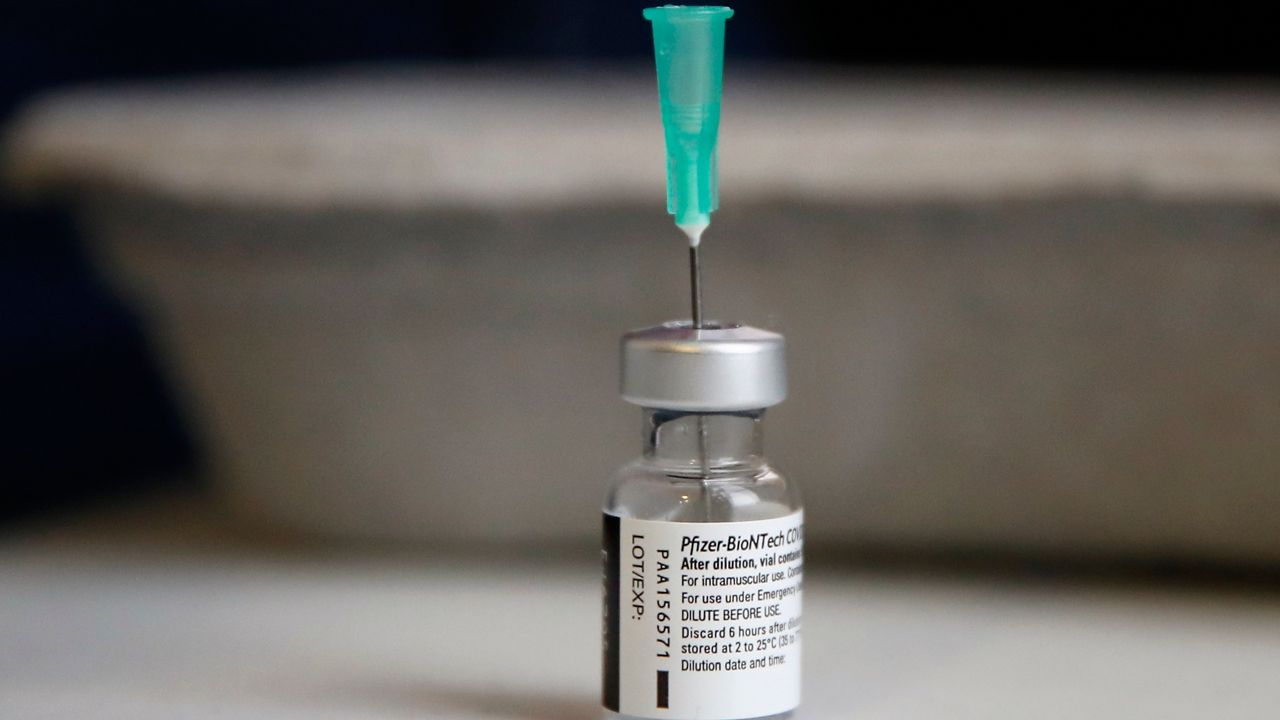LOUISVILLE, Ky. — Kumar Rashad is not eager to get a COVID-19 vaccine. The Jefferson County Public School (JCPS) teacher told Spectrum News 1 that the speed of the vaccine’s development and the country’s history of medical experimentation on Black people weighs heavily on his mind. “There’s no way as a Black man I can trust this government to do what it says it’s going to do and for this vaccine to do what they say it’s going to do,” he said
But a novel proposal to pay people to get vaccinated could make him reconsider. “That would absolutely make me rethink my stance,” he said. “It would make me feel like the government might actually care about our trust.”
There is, at this point, no widespread public push to pay people to get vaccinated, but it’s an idea with high profile supporters, including two Democratic candidates for president, Andrew Yang and John Delany, an economist who served in the Clinton administration and another economist who served in the Bush administration. Several private companies have also announced plans to offer a modest financial incentive to employees who take the vaccine.
The theory is a simple one, Harvard economist N. Gregory Mankiw wrote in the New York Times last fall. “One of the first principles of economics — perhaps the most important — is that people respond to incentives,” he wrote.
Simply put, paying people to get vaccinated will result in more people getting vaccinated. And the more people who are vaccinated against COVID-19, the sooner the pandemic ends.
Increasingly, there is evidence that such an incentive may be necessary. A recent Gallup poll found that 35% of Americans would not take the vaccine at that moment if it were available to them.
The reluctant have their reasons. Some are ardent anti-vaxxers and others are what University of Louisville bioethicist Mark A. Rothstein calls the “vaccine hesitant.”
“They are concerned about the speed at which the vaccine was developed, the novelty of an mRNA vaccine, distrust of government, and distrust in the health care system (especially among racial and ethnic minorities),” he told Spectrum News 1 in an email. “I think most of the people in this group are reluctant to be in the first wave of vaccine takers, but they would be willing to take it after a while.”
If only 65% of Americans are willing to be vaccinated, that’s not enough to reach herd immunity, the point at which enough of the population is immune to the virus that its spread is under control. Experts are not sure when that will be achieved, but Dr. Anthony Fauci has recently said it may only come when 90% of people are immune.
Robert Litan, an economist with the Brookings Institution who served in the Clinton Justice Department, has proposed a $1,000 payment to every American who receives the vaccine. It would be made in two installments under his proposal. First, a person would get $200 upon vaccination and then another $800 once the country reaches herd immunity.
“The reason for holding out the $800 balance until herd immunity is achieved is to provide strong incentives for everyone to encourage — in real life and on social media — their friends, family, work colleagues, and members of their religious communities to get vaccinated,” he wrote last month.
While the plan would be costly, economists argues that it would pay for itself once vaccinated people felt more comfortable leaving home and spending money, which they will have more of after receiving the vaccination.
Another form of incentivisation is happening in the workplace. Last week, Trader Joe’s and Dollar General announced plans to compensate employees who are vaccinated. Grocery chain Aldi joined them this week. All three employers have promised giving employees the equivalent of four hours of pay for receiving a COVID-19 vaccine.
Some of Louisville’s largest employers — UPS, Ford, and Kroger — did not respond to questions about whether they are considering similar incentives for employees.
But not all experts think this is a sound approach to public health. Rothstein, the UofL bioethicist, said he does not support the idea of paying people to take the vaccine. “I think the way to generate momentum for vaccines is for people to see that the vaccine is safe and effective, greater dissemination of facts about the vaccine by individuals they trust (like their personal physicians), and peer support from colleagues, friends, and family members who have been vaccinated without any serious side effects,” he said.
He also cited the concern that offering people money in exchange for the vaccine could cause suspicion. “Paying people to be vaccinated, especially by the government, could backfire and ‘confirm’ the suspicions of some people distrustful of government,” he said.



